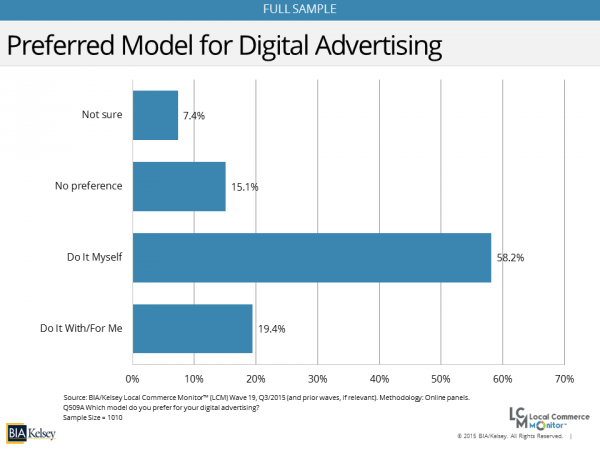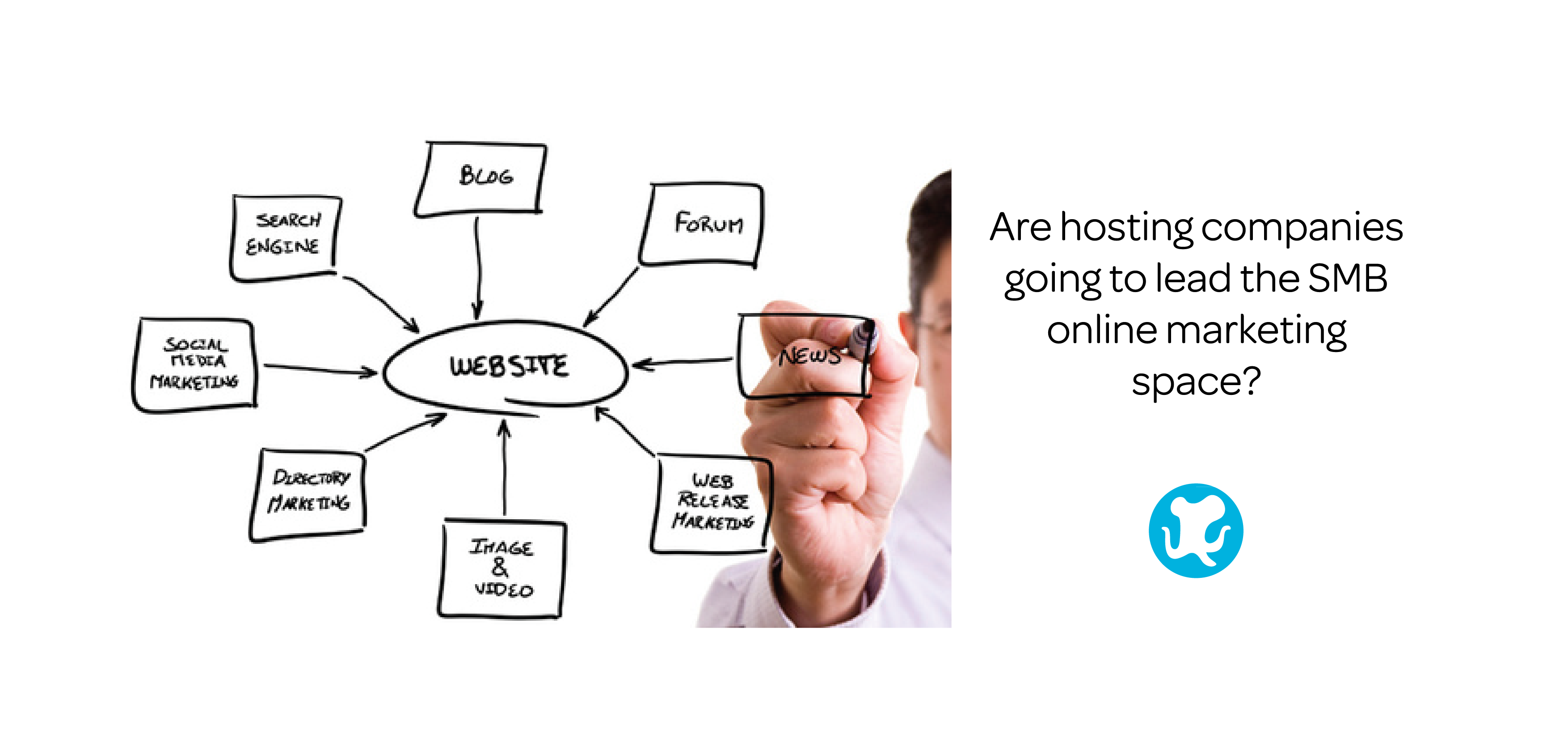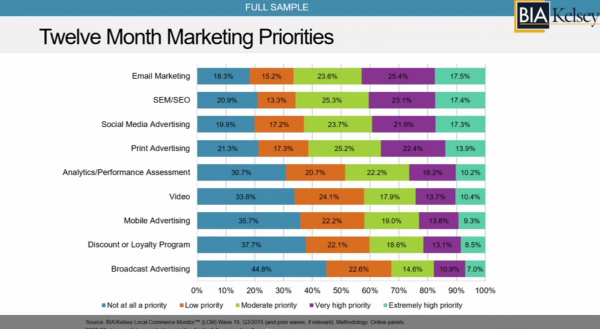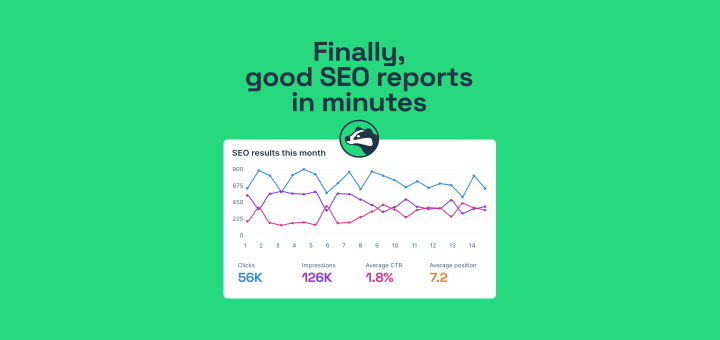The recent buyout of Yodle by Web.com again brings up lots of conversations around the SMB online marketing space and how different types of providers design their strategies towards this huge market. This challenge is not new but this recent piece of news inspired me to go back to this topic which I love.
A particular definition of SMB
First of all, trying to define a market within an acronym like SMB is quite hard. At Microsoft, for example, an SMB is a company from 0 to 100 employees. My definition of SMB is a company that does not have a specific department for Online Marketing nor a clear budget. Some SMB owners, mostly one person companies, want to be treated like Small Businesses and they act like they are bigger.
Another criterion to define an SMB is related to their budget. We see a high end SMBs as the one willing to invest up to $1000/month. Obviously, there are some of these SMBs with higher budgets but that’s not the norm. Anyone with less than a $250 budget is not going to find anyone willing to help him. Low cost agencies are willing to get some profit out of headcount. Over $500/mo budget, and you start finding some companies that rely on economies of scale to provide Online Marketing Services.
To summarize, my budget wise SMB classification approach:
- Low: Lower than $250/mo: do it yourself online marketing using apps and third party solutions
- Medium: From $250 to 1000/mo: low cost agencies and volume SMB providers willing to provide you with some basic service
- High: Over $1000/mo SMB: In-house professional plus specialized agency working together
Do It Yourself, aka: I do not have money to outsource or I want to learn and control my marketing
So the SMB owner has to face the option of learning and managing their online marketing if they are running low on budget. This is when they choose to work with apps and solutions for their website’s online presence, SEO and email marketing. Depending on the type of business, they may choose to do some local listing ad or even Facebook ads sometimes. WordPress, Facebook Ads, Email Marketing providers (Mailchimp, Constant Contact, etc) and all those website building companies (Wix, Squarespace, Weebly, etc).

An SMB owner you don’t (or shouldn’t) expect too much service here but the automation as well as ‘educate yourself’ materials. The challenge for the SMB here is to make a significant impact in their general goals. Most of them prefer a more conservative position and they cover their online presence and act according to how their market asks them for it.
Companies serving this space need to make great effort in simplicity and education, otherwise users will be (and often are) frustrated.
SMB Providers
The untapped opportunity to serve a one-stop-solution to a huge market size SMB is what made some companies pour lots of effort into addressing SMB needs. In this segment is where you find the traditional Yellow Pages companies trying to transform their paper identity into digital opportunities. And pure Online Marketing SMB providers like Yodle and Reachlocal, etc.
Customers of these types of companies appreciate service and support but expect Providers to treat their goals personally. The problems appear when the structures of these big companies don’t adapt well to the increasingly complex world of online marketing and more savvy customers. Also when the SMBs act like casual advertisers not willing to keep up certain investments on a recurrent basis.
Providers in this space face very high churn rates, in the likes of 90% year which makes them to hard to become a leading unicorn.
In fact, I am guessing that the reason why Yodle was sold to Web.com is because they couldn’t demonstrate a sustainable business model, lacking enough margins to make a mark in the space.
[slideshare id=39479954&doc=reachlocalbiakelseykeynote2014-140924102939-phpapp02]
Digital Marketing Agencies
Agencies exist because at some point more capable SMBs are looking for customized solutions and some face to face account management. They ask for tailor strategies and relationships where they can influence and learn.
SMBs are usually happy when this happens but they are usually demanding. The problem for Agencies is that if they want to survive, they have to become boutique agencies that learn how to qualify these projects and impact in them. And they become specialists in fields like SEO, SEM or Social Media.
Which piece of this cake are Hosting Companies going to eat?
Web.com used to be a Hosting company and at some point a lot of their business was of the purely hosting type (Shared hosting and Domains coming from Register.com and Netsol buyout) but they act like an SMB provider, mostly DIFM (Do It For Me). I think Web.com is trying to cover the medium-low market with scalable solutions and aims to understand how to scale their offering with the knowledge and experiencie of Yodle. Web.com’s ARPU according to its books is still low due to the large customer base of their acquired pure domain name providers. But this figure makes it interesting to see where Endurance and GoDaddy stand in terms of market targeting.

I do not believe that a Hosting Company can become a pure online marketing player and I think they should not seek to be a complex macro-agency. Instead, Hosting Companies should understand that their customers are evolving and becoming more educated (Millennials should take over their parents business :D, but that is another topic) and provide them with tools that connect with their business goals and situations.
According to a recent study by Vendasta about SMB Advertiser Churn data, DIY service model is more likely to have a smaller churn rate than DIFM model (30% Vs. 50%) and the findings show that SMBs gradually take on more responsibility on their online marketing.
Endurance (and others) understood this and made a splash with the $1 Billion acquisition of Constant Contact, a leading email marketing platform. Hosting companies are also investing in providing their customers with WordPress solutions as they see huge demand for that platform.
one stop shop online marketing large providers are going to disappear
So, my personal take here is that one stop shop online marketing large providers are going to disappear, agencies are going to become more boutique specialized, SMBs are going to become more savvy and Hosting companies will have an opportunity to present and serve different platforms and apps. Platform and apps vendors (like marketgoo website marketing – seo) should work on understanding our specific role and help SMBs to learn and take advantage of the online marketing opportunities with simplicity and effective solutions.
Is this what Web Hosting 2.0 looks like? Would love to hear your thoughts.






One thing I notice with outsourcing marketing is it’s very allusive on what you get or what they do, if there is a straight forward package deal I would be more apt to consider it. After all hosting companies like our http://webhost.pro live by packages.
Thanks for your comment, Charles! I noticed you have a nice SEO cheatsheet on your site. Have you considered offering an SEO tool to your users, as part of a bundle or standalone product?
Thanks for the thoughts! Web hosting in online marketing is very vital because they may serve as a guide especially for those new in the business. Proper guidance and strategies is very much important to follow to achieve success in the business. I recently had some problems with it and ended up getting some help with this matter from http://www.internetmarketingexpertshobart.com.au.